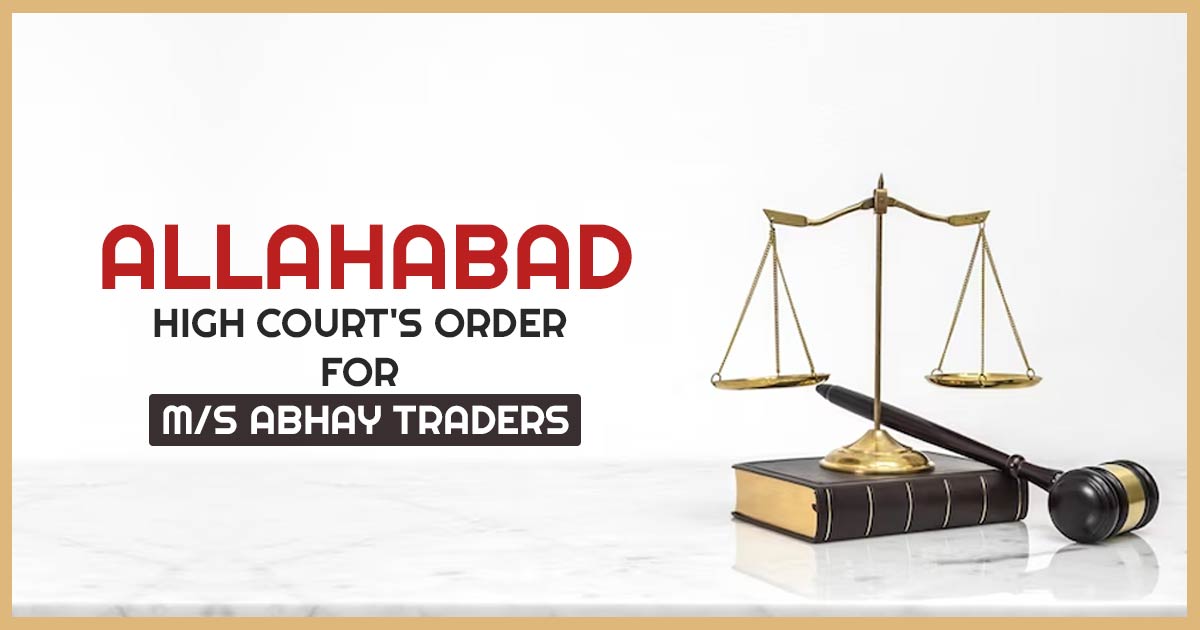
A show cause notice should comprise the foundation of the case laid on which the action would be important, ruled by the Allahabad High Court. The taxpayer would have the remedy to file answers/objections toward the related authorities in case the show cause notice is sufficient.
There would be two major needs of the principles of natural justice to be complied with at the time of issuing the show cause notice, the bench, Justices Siddhartha Varma and Arun Kumar Singh Deshwal ruled.
“(I) a show cause notice contains the material/ground which, according to the department necessitates an action;
(II) the particular penalty/action which is proposed to be taken. Even if it is not specifically mentioned in the show cause notice but it can be clearly and safely discerned from the reading thereof that would be sufficient to meet this requirement.”
On the basis of the ITC that was falsely claimed by the applicant as per the purchases represented by the fake firm, the show cause notice under section 74 of the Uttar Pradesh Goods and Services Tax Act, 2017 was issued to the petitioner. The petitioner needed to show cause for the reason why the tax including the penalty would need to be imposed on him.
The petitioner’s attorney argued that the show cause notice was ambiguous and unconstitutional. The Special Investigation Branch’s report was the only source used.
The Department’s legal representative claimed that because no formal procedures had yet begun, this was only a show-cause notice to which the petitioner had the right to respond and raise concerns. Furthermore, it was argued that only if it “appeared” to the proper officer that tax had not been paid, had been underpaid, had been incorrectly refunded, or where Input Tax Credit had been improperly claimed or used as a result of fraud, any wilful statement, or the suppression of fact, proceedings in response to the show cause notice could be started. The writ petition was filed too soon and hence was subject to dismissal.
In Gorkha Security Services vs. Government (NCT of Delhi) [(2014) 9 SCC 105], the Court stated that a show cause notice must specify the charges against the individual being prosecuted in show cause proceedings in order to meet the criteria of natural justice principles.
“Purpose of the show cause proceeding is meant to give a person proceeded against a reasonable opportunity of making his objection against the proposed charges as indicated therein as observed by the Hon’ble Supreme Court in the case of Khem Chand Vs. Union of India AIR 1958 SC 300. This judgment was also considered by the Apex Court in Oryx Fisheries P. Ltd. Vs. Union of India reported in (2010) 13 SCC 427,” the Court ruled.
The Court noted that the show cause notice was not unlawful since the Petitioner was simply requested to give justification for why tax and penalty should not be levied on him, rather than to address the claims’ merits. The show cause notice issued in accordance with Section 74(1) of the 2017 Act was sufficient and included all pertinent information and justifications. Therefore, it cannot be nullified in accordance with Article 226 of the Indian Constitution.
As a result, the petition was dismissed with instructions for the petitioner to present any responses or objections to the relevant authorities within a month, along with supporting documentation for the disputed transactions.
| Case Title | M/S Abhay Traders |
| Citation | WRIT TAX No. – 1265 of 2022 |
| Date | 14.07.2023 |
| Petitioner | Aloke Kumar |
| Respondent | C.S.C.,Ankur Agarwal,Gopal Verma |
| Allahabad High Court | Read Order |








